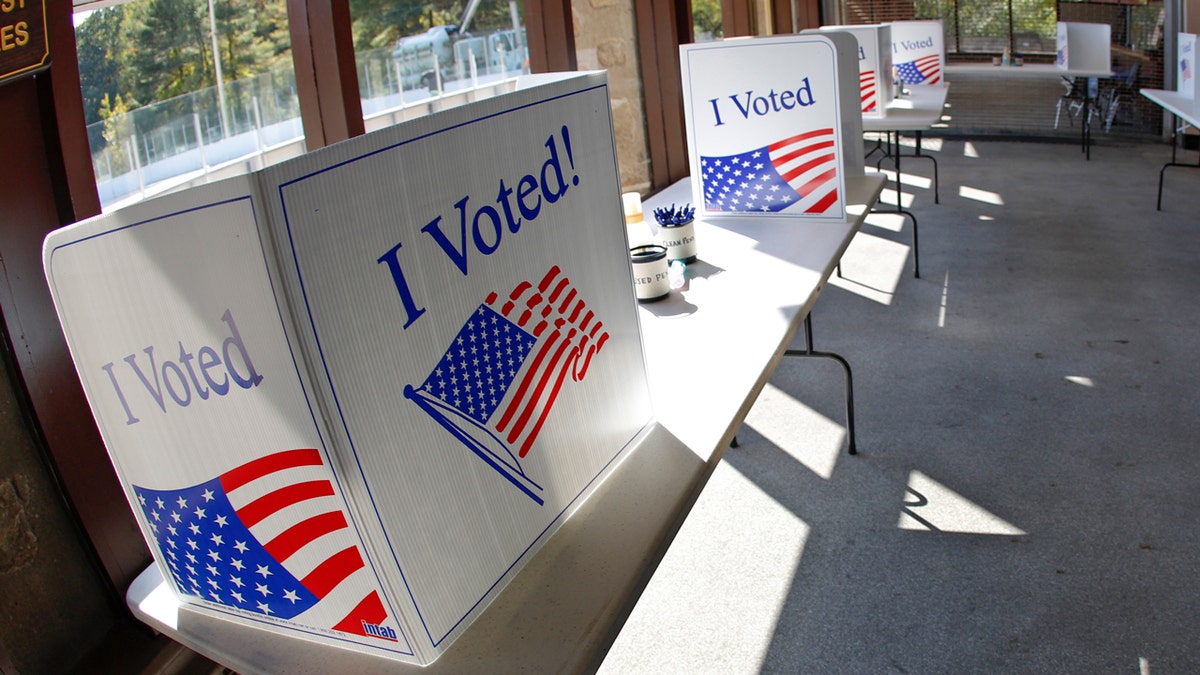Fox News Flash top headlines for August 30
Fox News Flash top headlines are here. Check out what's clicking on Foxnews.com.
- Pennsylvania is considering bumping its April primary date back into March, partly to avoid voting taking place on the first day of Passover next year.
- A proposal by Republican state Sen. David Argall would set the Keystone State's 2024 primary date as either March 19 or March 26.
- Argall acknowledged in an interview that the date still leaves Pennsylvania's primary after those of several other large states, as well as after Super Tuesday.
Pennsylvania is considering changing the state's 2024 presidential primary to an earlier day, although the proposed move may do little to give the state’s voters more say in deciding presidential nominees.
State lawmakers plan to vote on legislation Wednesday that would change Pennsylvania’s primary from late April to late March.
The state is a premier battleground in presidential elections, but it hasn’t hosted a competitive presidential primary since 2008, when Hillary Clinton pulled off a win to stay alive against Barack Obama, the leader in delegates and eventual winner of that year’s Democratic nomination.
KANSAS SETS MARCH 2024 PRESIDENTIAL PRIMARY DATE
For now, President Joe Biden faces a couple of Democratic challengers, but is expected to secure his party’s nomination, while former President Donald Trump and Florida Gov. Ron DeSantis have dominated the early Republican race in a field that is about a dozen deep.
Under current law, Pennsylvania’s primary date is the fourth Tuesday in April, which lands on April 23.
Many states want to hold presidential primaries earlier, to give residents more influence in the trajectory of presidential campaigns. But Pennsylvania lawmakers have resisted a change because it would push the beginning of the state's customary 13-week primary season into the winter holidays.
On Wednesday, a state Senate committee could advance a proposal to change the primary election to March 19 or March 26.

Voting booths are seen at a collection location in the North Park Ice Skating Rink Lodge area, McCandless, Pennsylvania, Friday, Oct. 9, 2020. (AP Photo/Keith Srakocic, File)
The Senate bill’s sponsor has long pushed to hold Pennsylvania's primary earlier, before presidential candidates have all but locked down the delegates they need to win the nomination.
In an interview, Sen. David Argall, R-Schuylkill, acknowledged that moving it to either of those dates still leaves many states with large numbers of delegates before Pennsylvania, including Super Tuesday primary states on March 5.
By March 19, a candidate could lock up the delegates necessary to win the nomination, or at least put the contest out of reach.
This year, more lawmakers are motivated to support a change because April 23 is the first day of Passover, a Jewish holiday when observant Jews typically avoid the same activities they avoid on the Sabbath, such as driving, working or using electricity.
Gov. Josh Shapiro, who is Jewish, has said he supports changing the date, as well.
WATCH THE FULL REPUBLICAN PRIMARY DEBATE
Argall's bill would move the primary date to March 19, the same date as Ohio, Florida, Illinois, Kansas and Arizona. Still, that date comes after primaries in other major states, including California, Texas, Georgia, Michigan, North Carolina, Virginia, Massachusetts and Tennessee.
Many state lawmakers oppose moving Pennsylvania's primary date to March 19, because that would force them and other candidates to start gathering signatures on their re-election petitions the week before Christmas, Argall said.
A forthcoming amendment to the bill would change the primary date to March 26. Under that scenario, Pennsylvania leaps over just Delaware, Rhode Island and Wisconsin, whose primaries are scheduled for April 2.
CLICK HERE TO GET THE FOX NEWS APP
Separately, a House bill expected to get consideration would move Pennsylvania's primary date to April 2, the first Tuesday after Easter. That would allow lawmakers and other candidates to start gathering signatures on their re-election petitions the day after New Year's Day, the bill's sponsor, Rep. Malcolm Kenyatta, D-Philadelphia, said.













































